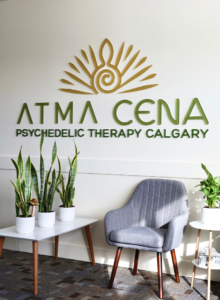In an evolving world of mental health care, the importance of staying at the forefront of new treatments is paramount. For mental health practitioners, therapists, and healthcare professionals, the current developments in psychedelic-assisted therapy offer an invaluable opportunity for growth and learning. As we approach a new era of legalization and acceptance, understanding the therapeutic applications, benefits, and limitations of psychedelic substances becomes not just relevant, but essential.
Around the globe, in regions like the United States, Canada, Australia, and the European Union, significant advancements are unfolding in the field of psychedelic-assisted therapy. In the United States, for instance, legislative movements such as California’s Senate Bill 58 are setting the stage for profound changes in drug policy, highlighting the potential of psychedelics in personal development and well-being. The Biden Administration’s plan to integrate legal psychedelic therapies further underscores this evolving perception.
The research is not limited to civilian applications; it extends to serving those who have served us. The U.S. Congress, through the National Defense Authorization Act of 2024, is pioneering the use of psychedelics in clinical trials aimed at treating conditions prevalent among military members, like PTSD and traumatic brain injuries. This reflects a growing recognition of the potential held by substances such as MDMA, psilocybin, ibogaine, and DMT.
In Canada, the Senate’s advocacy for psychedelic research resonates with a broader understanding of their role in mental health treatment. Australia and the European Union are also advancing in their approach to the legalization and therapeutic use of psychedelics, acknowledging the benefits these substances can offer in mental health care.
This global shift towards accepting and understanding psychedelics as a valuable tool in mental health treatment is not just a trend – it’s a significant movement, suggesting new approaches to complex mental health issues. For healthcare professionals, this represents an opportunity to expand their therapeutic repertoire and to be part of a pioneering movement in mental health care.
As such, training in psychedelic-assisted therapy becomes more than an educational pursuit; it is an opportunity to be at the cutting edge of mental health treatment. Programs offered by institutions like ATMA Journey are not merely courses; they are comprehensive experiences that equip healthcare professionals with the necessary knowledge, ethical understanding, and practical skills to apply these therapies safely and effectively.
The evolving landscape of legalization and research into psychedelic therapies marks this as an opportune moment to engage with this emerging field. For those in the mental health profession, now is a time to explore training options, join the psychedelic therapy community, and prepare to play a crucial role in the next wave of mental health treatments. The journey into psychedelic-assisted therapy is not just a step forward – it’s a leap into a future of enriched therapeutic possibilities.




